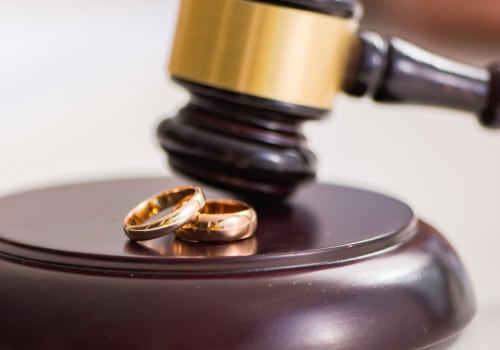Even though there is no court battle in an uncontested divorce, one or both spouses can hire attorneys to help them get through the uncontested divorce. You may want to talk to a lawyer, for example, if your case seems complex to you or if you have unanswered questions. Once a decision is made to divorce, one of the first questions people ask is: how do I pay my lawyer? Contingency fees are not allowed in family law matters in New Jersey. Therefore, in divorce matters, parties generally pay a withholding fee to their respective attorneys to begin divorce proceedings.
The best way to find free legal assistance or representation for your divorce is to go to your local court or the American bar association. There, you'll find some more affordable divorce programs. LSNJ coordinates the Legal Services system throughout the state, which provides free legal assistance to low-income New Jersey residents for their civil legal issues. Through its work, LSNJ strives to ensure substantive and procedural justice for those living in poverty.
For some parties, mediation may be an option to consider in resolving their divorce. Mediation allows parties to resolve their differences with respect to finances and division of property without the financial burden of litigation. Mediation costs the parties considerably less than litigating a divorce in court. In addition, mediation allows parties to resolve their issues with a qualified mediator.
Mediators help parties seek common ground so that they can reach a solution. Mediation only works in situations where both parties agree to mediate. Successfully navigating the path to an unopposed divorce requires careful attention to detail and knowledge of relevant New Jersey laws and court rules. It's a little easier to represent yourself in family court, and once you get custody and support orders, you can proceed with an unopposed divorce.
Generally speaking, you have to live in New Jersey for at least one year before you can file for divorce in the state. This is a good option if there are substantial assets at stake that you cannot liquidate during the divorce. You can still get legal protection for your divorce, but it will be much more affordable as you may not get full legal representation. When the hearing is over, the judge will sign the Divorce Judgment that you prepared in advance.
You can seek the help of friends or family to apply for a loan of the funds needed to pay your divorce lawyer. This is considered a no-fault ground for divorce because the spouse filing for divorce is not pointing the finger at fault at the other spouse. But emotions aside, if you can't afford to pay attorneys to help you against an overly litigious ex, the result is, unfortunately, that you are likely to weigh yourself in favor of your ex. reason for divorce.
It is very common for a lawyer to donate a certain amount of their time to a local agency like this and provide services to those who cannot afford them. While no one plans for divorce, the reality of divorce represents a life-changing transition that has significant financial consequences. Nothing prevents you from entering into an estate settlement agreement before filing for divorce.








